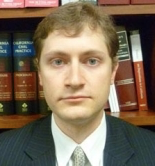Industry Insights
February 4, 2021
Grinberg: Lawsuit Challenges Prop. 22 Victory
- State: California
- - 0 shares
On Nov. 3 of last year, Americans from coast to coast went to vote. In California, we voted not only on federal issues, but on local ones as well. With any close election, there’s typically some disappointment, and this voting day was no exception.

Gregory Grinberg
Proposition 22, which was passed into law by a majority of California voters in November, would exempt certain “gig” or “app-based” workers from the effects of Assembly Bill 5. With AB 5, the Legislature attempted to turn Uber and Lyft drivers, among a whole slew of other workers and professionals caught in its blundering dragnet, into employees.
Even if the driver wants to be an independent contractor. Even if Uber and Lyft are offering only independent contractor arrangements. AB 5 would have overruled the wishes of the parties and forced an employment relationship, and Proposition 22 reversed this arrangement.
Hypothetically speaking, AB 5, which went into effect Jan. 1, 2020, changed your average Uber driver from an independent contractor to an employee, and Proposition 22 changed that Uber driver back. So, an Uber driver “t-boned” by a truck on Jan. 15, 2021, would likely have filed a workers’ compensation claim against Uber. The company would have denied the claim, arguing that the driver was not an employee but an independent contractor, and would have been right, based on Proposition 22.
Well, not everyone was happy with Proposition 22. Anyone looking to hurt Uber or Lyft, or any driver who doesn’t want to be an independent contractor, can join the suit seeking to have Proposition 22 overturned. If the suit is successful and the California Supreme Court strikes down Proposition 22, then AB 5 would likely control and turn the independent contractors back into employees.
Meanwhile, any pending claims should be eyeing this development closely. Uber and Lyft would likely want to race as fast as possible to a priority conference, arguing that whatever happens at the Supreme Court level, the law currently is that Uber and Lyft drivers are independent contractors, and the claims should be dismissed. To protect against pending appeals, they might be inclined to resolve any such claims by way of compromise and release with a Thomas finding.
Meanwhile, applicants' attorneys will be urging their clients to hold out, trying to delay trial as long as possible and will be trying to stretch out appeals hoping the law is reversed up top, reviving their claims. The pressure will be on applicants, of course, to get some money now rather than wait and possibly get nothing.
Meanwhile, Uber and Lyft hold the ultimate trump card: They already voted with their money. They already voted with their voices. And they already voted with their, well, votes. The next step, if the Supreme Court gives Uber and Lyft a reversal, is to vote with their feet and stop operating in California.
The two companies offer a service that is incredibly popular socially and tremendously beneficial. There is no shortage of volunteers wanting to drive for one or both. Generally speaking, wherever the two start operating, instances of DUIs fall drastically. And, unlike the money and effort necessary to obtain a taxicab medallion, there aren’t really many barriers to entry. Almost anyone with a clean and safe car can drive for the two.
Uber has previously threatened to leave California if forced to shift from using independent contractors to employee-drivers.
The reason I bring this to your attention, other than the immediate implications for workers’ compensation practice, is because the California Legislature’s treatment of Uber and Lyft is a highly visible symptom of a chronic disease. How many other beneficial but not as visible companies are driven out of the state because of arduous regulation and labor laws?
Perhaps, before proposing legislation, a declaration under penalty of perjury should be required from all elected officials involved that they have reread a certain fable of Aesop’s within the last three months. Those behind efforts to overturn Proposition 22 might likewise derive some benefit from a refresher of the story.
Gregory Grinberg is managing partner of Gale, Sutow & Associates’ S.F. Bay South office and a certified specialist in workers’ compensation law. This post is reprinted with permission from Grinberg’s WCDefenseCA blog.
Advertisements
Columns
- Montgomery: San Fran City Official Stole $627k From Workers' Comp Division 12/10/25
- Kamin: Ring the Bells for Settlement Season 12/08/25
- Paduda: Does Comp Care About Workers? 12/05/25
- Sandoval: Throwing Subrogation Under the Bus 12/03/25
- Johnson: Some Thoughts on Apportionment - And SIBTF 11/20/25
- Montgomery: State's First Responders May File Comp Claims for Trauma 11/14/25
- Snyder: Use This New Survey to Negotiate Better 11/12/25
- Holden: Workers' Compensation Act Withstands Another Constitutional Attack 11/11/25
- Gelman: Sherrill's Win Locks in Worker Protections 11/10/25
- Kamin: Newsom Promises SIBTF Reforms in 2026 11/07/25
- Kamin: Comp Costs Hit Highest Combined Ratio Since 2001, WCIRB Says 11/05/25
- Montgomery: DIR to Blow $1.25M on Another Questionable Comp Study 11/03/25
- Wroten: California Sets the Standard as New Study Links Workplace Injuries to Heat Exposure 10/29/25
- Kamin: En Banc Clarifies Policy Reporting Requirements 10/27/25
- Gelman: PTSD-Stricken Officer's Disability Claim Denied 10/22/25
- Snyder: TAG a Structured Settlement Broker 10/17/25
- Snyder: New Medi-Cal Rules Can Affect Your Settlement 10/15/25
- Fish: Guarding Against PTSD Overdiagnosis 10/10/25
- Montgomery: DWC's MPN List Disappears Yet Again 10/08/25
- Ferguson: A Tribute to Thomas Chapman Lynch 10/06/25
Now Trending
- Workers' Compensation News
-
Calif. Court: WCAB
Has Duty to Flesh Out Witness
Statements When Workers Can't…
Posted on Dec 9, 2025
-
Calif. SCIF:
Ambiguity in Disability
Accommodation Rules Could Hamper…
Posted on Dec 8, 2025
-
Calif. Court Nixes
Requirement to Add Comp Coverage to
FAIR…
Posted on Dec 10, 2025
-
Mass. Worker's
Unreasonable Conduct Delaying Case
Results in Dismissal of…
Posted on Dec 8, 2025
-
Mo. Carrier Must
Pay Bill for Worker's Knee…
Posted on Dec 11, 2025
-
Wis. Employer
Wrongfully Refuses to Rehire
Injured Truck…
Posted on Dec 10, 2025
-
N.Y. Governor
Vetoes Fraud Assessment…
Posted on Dec 9, 2025
-
N.J. High Court:
Comp Judge Can Rule on Law She
Sponsored in…
Posted on Dec 12, 2025
-
Ga. Employer Faces
$20,522 in Penalties for Worker's…
Posted on Dec 11, 2025
-
N.Y. Board's
Denial of Worker's Occupational
Disease Claim Not Supported by…
Posted on Dec 8, 2025
Jobs
- Workers' Compensation Defense Attorney (REMOTE)
- Workers' Compensation Analyst
- Workers’ Compensation Defense Attorney - 100% Remote
- In-house REMOTE Workers' Compensation Litigation Attorney
- Defense Attorneys - Remote Work Available
- Defense Attorney
- Trial Attorney - Workers Compensation Staff Counsel Workers' Compensation Jobs
Upcoming Events
Mar 3-4, 2026
Save The Date! WCRI’s 2026 Ann
Registration will open up in the coming months. We'll see you there! - Leading national workers' …
Mar 5-6, 2026
DWC’s 33rd Annual Educational
Register Now! 2026 conference topics: DWC Update AI with a Claims Focus Medical and Legal Ethics …
Mar 19-20, 2026
DWC’s 33rd Annual Educational
Register today! 2026 conference topics: DWC Update AI with a Claims Focus Medical and Legal Ethi …
Social Media Links
c/o Business Insurance Holdings, Inc.
Greenwich, CT 06836




No Comments
Log in to post a comment